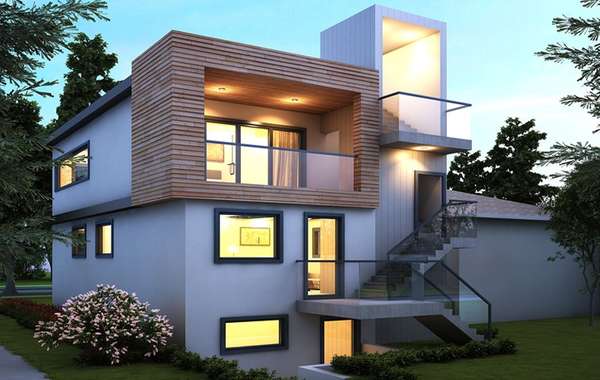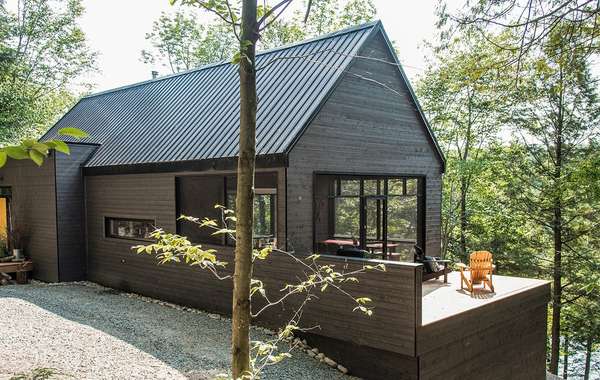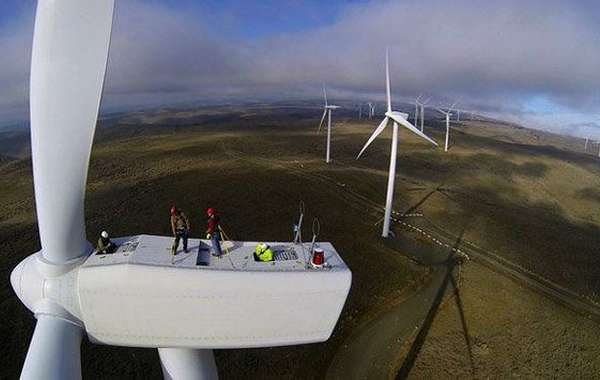Is Vancouver a green city with easy public transportation?
The city of Vancouver continues to go to great lengths to make it a liveable city with a dense urban core and excellent public transportation. In an effort to increase affordable housing and reduce urban sprawl, the city is offering incentives to add rental living space.
See here to learn about interest free loans for afforable prefab homes and ADUs in Vancouver with the Secondary Suite Incentive Program.
In our previous article we discussed the building trend in Vancouver known as Laneway Housing, where new homes are being created in backyards, accessed by lanes in the centre of city blocks.
More densely populated neighbourhoods means more efficient use of city services, and a more vibrant and active local business community.
Living in an efficient home will certainly reduce your personal carbon footprint, but one of the biggest impacts you can have comes from getting yourself out of your car. Reduced automobile use is one of the great benefits of increased urban density. It means easier access to the services you use, and it justifies improvements and expansions of public transportation.

Efficient public transportation combined with the absence of a major automobile artery into the city centre has tipped the scale away from cars when it comes to convenience, as commuters tend to gravitate towards whatever means of transport is the quickest and easiest.
The city's integrated transit plan has resulted in a decrease in car traffic entering the downtown core, despite a 50% growth in urban population and a 300% growth in the Metro area. The city will also be installing 70 electric vehicle charging stations throughout the city, to help those who need cars ease off on their gasoline consumption.

At present, the city has separated bike lanes running from the eastern part of the city, through downtown and to the west part of the city with plans approved for another lane in the summer of 2013.
According to a UBC study, there is a 90% reduced chance of injury when bike lanes are separated by physical barriers compared to just painted on lines.
BC Step Code for better building standards is challenging, but well explained see here!
Home rating systems encourage better building standards:
Building rating systems like EnergGuide, Built Green, and LEED (Leadership in Energy and Environmental Design) reward homeowners and builders for creating homes that perform beyond those built simply to code. The city of Vancouver has taken a page from that book, and raised the bar on both commercial and residential buildings, requiring all rezoned building projects to receive LEED Gold certification or better.
"We value our relationship with the building industry. They have delivered on meeting our aggressive standards, provided valuable feedback and have been very supportive of the direction we are going in" says David Ramslie, Senior Sustainability Programs Manager.
"The City of Vancouver is leading the way in Canada on how low-rise housing can be built, which helps lower monthly costs for residents and reduces greenhouse gas emissions. I applaud these nation leading efforts" says Chris Higgins, CaGBC Program Leader of LEED for Homes Canada.
Building codes for construction should be seen in the same light as minimum wages are for salaries. Neither represents the higher end of their scale, rather they are there to protect us from anything worse.
This is not to come down too hard on building codes; they ensure safe structures, it's just that they can do a lot more in regards to energy performance.
All new home construction projects in the city must now go through an EnerGuide audit, and homes built to city building bylaws would be expected to achieve an EnerGuide rating of 80 or better.

Part of that audit is a blower door test which involves sealing your home, and with a fan in the doorway blowing out, the home is depressurized. This allows builders to measure, find and repair any air leaks before construction is completed.
While they are a prerequisite for programs like LEED, unfortunately blower door tests are not something required by provincial building codes.
When there is a minimum performance requirement in place, builders must repair flaws in the building envelope before owners take possession.
Air leaks cost homeowners in heating bills, and can cause damage to the interior of walls as many litres of water carried in warm air can pass through even the smallest of holes in a heating season.
A house with an EnerGuide rating is like a car with a safety check. It is an independent third party report on the quality of what you are buying, and an indication of what you can expect in the way of performance. Kudos to Vancouver for introducing this process to mainstream construction practices. Read more about Vancouver's building standards here.
All of these measures are part of the Greenest City 2020 initiative, which is an effort to make Vancouver the greenest city in the world by 2020. We hope they succeed, and that other cities find inspiration in their efforts.
Now you know more about the Vancouver greenest city intitiative, find more pages about sustainable lifestyles and building in the Ecohome Green Building Guide and on these pages:
Find more about green home construction in the Ecohome Green Building Guide or to learn more about the benefits of a free Ecohome Network Membership, see here. |






































Comments (0)
Sign Up to Comment